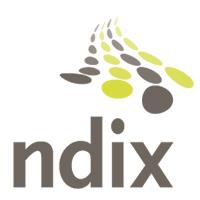In short
- Digitalisation has increased enormously since the start of the corona crisis. Working from home became ‘the new normal’ for everyone.
- More connections are needed when everyone starts working from home: stable and secure connections, NDIX’s speciality.
Global Goal

Jeroen van de Lagemaat, director at NDIX: “We were all confronted with the importance of (being able to) work digitally in 2020. You could no longer just walk to the administration folder. Representatives could no longer physically visit their customers. Digital infrastructure expanded rapidly. We have also seen the benefits of this since last year: everyone now knows how important it is to be able to work online. At the same time, we have noticed that companies want to use secure IT facilities and connections more flexibly. Compare it to HelloFresh, for example, a service that you can easily switch ‘on’ or ‘off’. The market is now asking for the same thing: if they want to have their server backed up to a secure data centre for an hour at night, they will not need this service for the other 23 hours of the day. We have a solution for this with our secure and flexible connections. I always explain the difference between a secure and an insecure connection using the motorway metaphor.
Suppose you want to transport money on public roads. You would do this with an armoured car. The internet as we know it is also a motorway of sorts, but you do not know which route the car will take. The route often passes through the United States or Asia, but this is determined by someone else. And: you have no idea who has a key to the car. We build virtual private connections at NDIX: your own digital motorway that always picks the shortest, most direct route. No one else can get onto your motorway or touch your data. We also provide an enormous capacity; a very wide motorway, so there are never any traffic jams. And you only use the motorway when you need it. So, the recent period has been an enormous opportunity for growth for us. This has been particularly noticeable since October of last year when we had a 50 per cent increase in requests.”
“Security plays an increasingly important role on these digital motorways, those connections. We want our data to be and stay confidential. We are not downloading the Corona app en messe, and people in city centres are critical about wifi because: ‘who can read along?’. We are also active on the German market”, says van de Lagemaat. “Germans are often more critical: they will not be quick to use Dutch data centres. Security is essential. We might think that a ‘virtual private network’ will do the trick, but it can still be hacked. An example is the hospital in Düsseldorf: their VPN supplier was hacked, and, as a result, they were no longer allowed to communicate externally for a fortnight. GP’s and patients were no longer allowed to look at the data from the outside as long as the connection was not secure: an enormous handicap.
The internet was never designed for such intense and sensitive use. The idealistic idea behind the internet, ‘everyone shares with everyone’, is turning out to be its Achilles heel. Because among this ‘everyone’, there are also people who do not have our data’s best interest at heart. We have to look for a safer alternative because digital connections are becoming the national backbone. A few alternatives are currently being developed worldwide. The NDIX network is one of them.”
Switching from the internet to a secure connection seems like quite a drastic change, but it is a logical next step. “I like comparing it to the waterways of old. They used to be the most important roads globally, with barges as a means of transport. And then the steam locomotive was invented. It was a lot faster and more effective because you could travel from town to town in no time. But there is always the power of the existing party, which shouts: no, we must keep it as it is. But a new movement will always emerge, a group that is curious and tries it out. Until everyone starts to see that this steam locomotive is very useful after all.
These so-called ‘early adopters’ will switch first, after which the masses will follow. We want to contribute to this development towards a new network. You have to be able to let go of fixed thinking patterns to do so. One of the ways in which we do this at NDIX is by welcoming young talent: young, creative and above all critical students from Saxion or the University of Twente, for example. We can only shape the digitalisation of tomorrow with their refreshing view of the future. We have to embrace these new impulses. Otherwise, we would still be stuck with barges.”
Contactinformation

Global Goals

Date: 6 April 2021 |
Source of tekst: INN'twente |
Author: Veertje Heemstra / INN'twente





